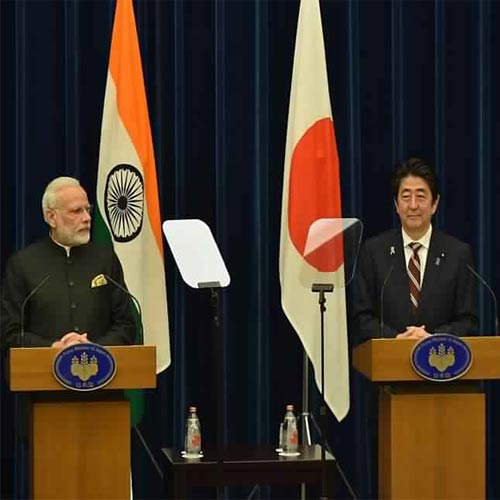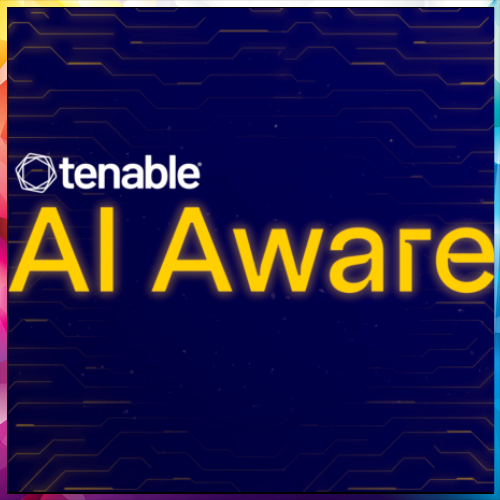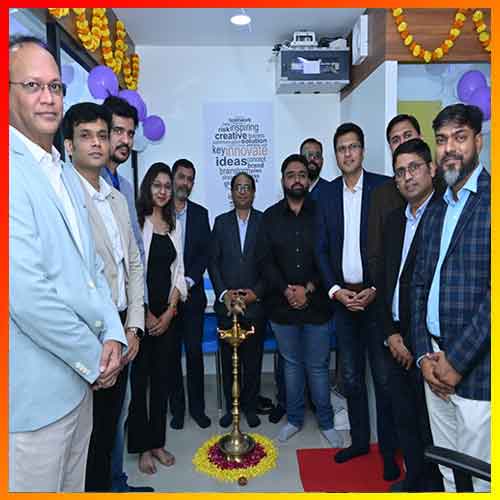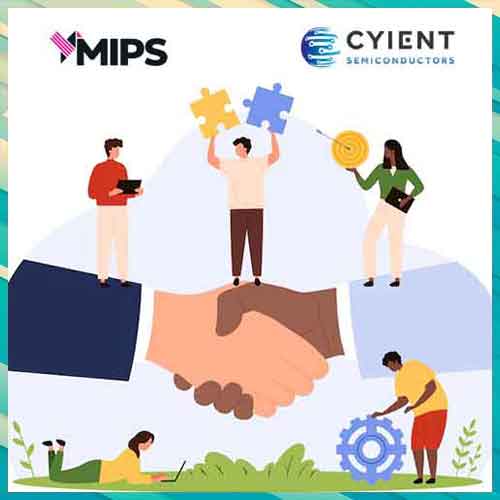India-Japan Fact Sheet!
2018-10-30
Prime Minister Narendra Modi in Japan,during his visit to Tokyo held a formal summit, during which economic cooperation and strengthening bilateral security is expected to be high on the agenda.The two Prime Ministers held informal talks over lunch and a private dinner and also visited Japan's largest facility for building industrial robots.
After addressing the Indian community, PM Modi will attend the 13th India-Japan annual summit, where the two nations are expected to deepen their strategic ties and build synergy across various fields. India and Japan have drawn closer as China's power in Asia has grown. Tokyo is worried about Chinese activity in the Western Pacific and Delhi on the other hand wants to keep Beijing influence out of the Indian Ocean.
1. India and Japan committed to working together to promote peace, stability and prosperity, through economic growth and development in the Indo-Pacific, including Africa, by enhancing connectivity through quality infrastructure and capacity building of our partners. Both countries are of firm belief that all development cooperation must be carried out in an open, transparent and non-exclusive manner and based on international standards including respect for sovereignty and territorial integrity of nations, responsible debt financing practices, and in alignment with local economic and development strategies and priorities.
2. By synergizing India’s "Act East Policy” and Prime Minister Modi’s 10 guiding principles for India’s sustained and regular engagement with African countries, with Japan’s "Expanded Partnership for Quality Infrastructure Initiative” and TICAD VI Nairobi declaration, the two countries welcomed and committed to further consultations with host Governments to foster tangible cooperation focusing on development of connectivity and other infrastructure in the Indo-Pacific. India and Japan welcomed progress in identification of specific cooperation, including but not limited to the following:
2.1 Cooperation in Sri Lanka, such as the development of LNG-related infrastructure;
2.2 Cooperation in Myanmar, synergizing development efforts in the Rakhine State by collaborating in housing, education and electrification projects;
2.3 Cooperation in Bangladesh, for enhancing connectivity by way of four-laning of road and reconstruction of bridges on the Ramgarh to Baraiyarhat stretch, and providing rolling stock and constructing the Jamuna Railway Bridge over the Januma River; and
2.4 Cooperation in Africa, such as organising an SME development seminar in Kenya and seeking a possibility of a collaborative project in the area of health service such as developing a cancer hospital in Kenya.
The two countries also acknowledged the importance of expanding cooperation in human resource development, capacity building, healthcare, livelihood, water, sanitation and in the digital space, and of working together to extend access to education, health and other amenities, and assist the people of the Indo-Pacific, including Africa, to realize their developmental potentials.
Further, the two countries will work towards establishing an India-Japan Business platform to enhance the exchanges between Indian and Japanese businesses toward developing industrial corridors and industrial network in the region. In this context, the two countries welcomed the Memorandum of Understanding between NEXI and ECGC, which is expected to promote development of concrete India-Japan business projects in the region.
Both India and Japan believe that their development cooperation in the Indo-Pacific can contribute to unlocking the potential for an equitable, positive and forward-looking change in the region, and contribute to socio-economic development of Africa.
India-Japan Cooperation Act East Forum
India’s North East Region is one of the main areas of India’s Act East Policy. The region also shares historical and traditional bonds with ASEAN countries, and has the potential to be India’s springboard to the ASEAN region. Enhancing connectivity within North East Region and with its neighboring countries is essential to tap its potential and presents crystallized examples of the shared vision between Japan and India as expressed in the Vision Statement.
The Act East Forum established last year has served as a driving force to advance India-Japan cooperation in the North-East. Its second meeting was held on 8th October with the following outcomes -
2.1 Expediting implementation -
Meghalaya North East Connectivity
Phase 1: Tura-Dalu (NH-51)
Phase 2: Shillong-Dawki (NH-40)
Mizoram North East Coonectivity
Phase 1 & 2: Aizawl-Tuipang (NH-54)
Sikkim: Biodiversity Conservation & Forest Management
Nagaland: Forest Conservation Livelihood Improvement
2.2 Japan and India reaffirmed their intentions to proceed with -
1. Completion of Gelephu-Dalu Corridor in collaboration with the ADB including Dhubri/Phulbari bridge project, which will be the longest river bridge in India if realized, as Phase 3 of North East Road Network Connectivity Improvement Project.
2. Consideration of developing Main District Roads (MDRs) and Other District Roads (ODRs), which will have positive socio-economic effect.
3. ODA loan to the "Project for Renovation and Modernization of Umiam-Umtru Stage-III Hydroelectric Power Station”
4. Sustainable Forest Management in Tripura, and consideration for a similar project in Meghalaya.
2.3 Skill and Vocational Initiatives -
1. To launch "Japan-India North East Bamboo Initiative” in view of the significance bamboo plays in the region. Industrial uses of bamboos and bamboo forest management will be pursued under this initiative, building on the successful first "North East Bamboo Workshop.
2. To promote Japanese language education in the North East as a part of the commitment made by the two Prime Ministers to establish Japanese language certificate courses at 100 higher educational institutions in India. The Forum welcomed the interest for such courses expressed by Cotton University and Gauhati University in Assam state, EFLU in Meghalaya state as well as NIT-N in Nagaland state, to which Japan is prepared to provide appropriate support through Japanese Language Teachers Training Centre. More proposals from North East States are welcome.
3. To promote skill training including Japanese language for caregivers from North East who visit Japan for training under TITP (Technical Intern Training Program) ,which contributes to enhancing cooperation between the two countries under the Asia Health and Wellbeing Initiative.
2.4 Disaster Management:
Japan’s contribution to resilient infrastructures in North East Region and through Capacity Development Project on Highways in Mountainous Regions -
1. Knowledge sharing through the Japan-India Workshop on Disaster Risk Reduction
2. Pursuit of better utilizing JICA Knowledge Co-Creation Program (Group & Region Focus) to provide relevant training opportunities for the officials of North East.
The Forum will review the progress of projects under its initiatives and further consider future cooperation concerning the North East Region of India.
India-Japan Economic and ODA Cooperation
Recognising the significant contribution of Japan’s ODA to the socio-economic development of India, India expressed appreciation for Japan’s continuous support that symbolises the ties between the two countries. In this regard, India and Japan reviewed with satisfaction the Japan’s assistance as shown below -
Japan’s ODA Loan
Since the last Summit in India in September 2017, the following projects were provided ODA Loans -
1. Bengaluru Water Supply and Sewerage Project (Phase 3) (I) [Karnataka]
2. Mumbai Metro Line 3 Project (II) [Maharashtra]
3. Project for Construction of Chennai Seawater Desalination Plant (I) [Tamil Nadu]
4. Project for Improvement of Himachal Pradesh Forest Ecosystems, Management and Livelihoods [Himachal Pradesh]
5. Project for Installation of Chennai Metropolitan Area Intelligent Transport Systems [Tamil Nadu]
6. Project for Renovation and Modernization of Umiam-Umtru Stage-III, Hydroelectric Power Station (Meghalaya)
7. Delhi Mass Rapid Transport System Project (Phase 3) (III) [Delhi]
8. North East Road Network Connectivity Improvement Project (Phase 3)
9. Project for the Construction of Turga Pumped Storage (I) [Purulia in West Bengal]
10. Project for the Construction of Chennai Peripheral Ring Road (Phase 1) [Tamil Nadu]
11. Project for Sustainable Catchment Forest Management in Tripura [Tripura]
During the 13th Summit, the signing ceremony of exchange of notes regarding the following projects including the Mumbai-Ahmedabad High Speed Railway Project (II) took place.
In addition, India expressed expectation that ODA loan regarding the dairy development in India will be provided soon and that preparatory surveys on pollution abatement of River Nag at Nagpur in Maharashtra, rural water supply in Madhya Pradesh, landscape community forest and water management in Meghalaya would commence soon. India also welcomed that relevant authorities of India and Japan started discussions for cooperation through ODA loan to promote SDGs in India.
Varanasi convention center
The two sides welcomed the progress of the Project for Construction of the International Cooperation and Convention Center in Varanasi, which is deemed as the symbol of friendship between Japan and India. India appreciated the additional grant aid already provided by Japan.
Grant aid for improving traffic congestion and urban environment
India also expressed its appreciation for the signing of the Exchange of Notes for the provision of a grant aid to the Project for Implementation of Advanced Traffic Information and Management System in Core Bengaluru in December 2017.
India-Japan Cooperation in Railways
Mumbai Ahmedabad High Speed Rail - To revolutionize the connectivity in India and introduce the High Speed Rail, India and Japan are cooperating to construct the Mumbai Ahmedabad High Speed Rail (MAHSR). Given the significance of the project, it is being monitored at the apex-level in the form of Joint Committee Meeting (JCM) presently co-chaired by Dr. Rajiv Kumar, Vice-Chairman NITI Aayog, from the Indian side and Dr. Hiroto Izumi, Special Adviser to Prime Minister Shinzo Abe, on the Japanese side.
The 8th JCM on MAHSR project held in Delhi on 17 September 2018 confirmed the steady progress of the project and it was also agreed that both sides will continue to advance mutual efforts to facilitate the smooth achievement of the project. Minister of Land, Infrastructure, Transport and Tourism, Mr. Keiichi Ishii and Parliamentary Vice-Minister of Land, Infrastructure, Transport & Tourism Mr. Masatoshi Akimoto visited India respectively in December 2017 and in May 2018 from the perspective of MAHSR Project, including station area development such as the approach roads, station plaza and multimodal integration plan.
During the summit meeting, Exchange of Notes and Loan Agreement for the second tranche of Japanese ODA Loan for MAHSR Project were signed, following completion of JICA’s Appraisal Mission in September 2018 and signing of the Loan Agreement for the first tranche of Japanese ODA Loan between JICA and DEA on 28 September, 2018.
Current status: National High Speed Rail Corporation Limited (NHSRCL) is the implementing agency of the project. Final Location Survey of the project has already been completed. Based on final alignment, all underground & overhead utilities have been identified. The process of land acquisition has begun between Mumbai & Ahmedabad with target of completion by December 2018. Joint Measurement Survey has been completed for 328 km out of 487km. The entire project, including the High-Speed Rail training institute, has been divided into 26 contract packages, out of which 4 packages are already awarded. Multimodal Transport Integration Plan, an important component for creating a smart and sustainable integrated transport network, is ongoing for all the 12 stations. Memorandum for general consultancy has been signed by JICA with the Ministry of Railways, NHSRCL and JV of Japanese consultants and marks an important development in the project timeline.
Western Dedicated Freight Corridor (DFC)
Western DFC, a corridor of 1,522 km from Jawaharlal Nehru Port Terminal (JNPT) to Dadri visualized for reducing the congestion in the Mumbai-Delhi route, being executed through JICA funding.
Current Status: DFC has achieved overall 48% physical progress of civil packages and track laying of 802Km has been completed. Approx. 99% land acquisition has been made and tenders have been awarded worth Rs. 33,130 Cr (JPY 523 billion). Trial run of an Indian Railways Freight train was conducted successfully on 15 August 2018 on the 190km long Ateli-Phulera section of the DFC falling on the Jaipur Division of North Western Railway between the National Capital Region (NCR) and Mumbai and thus marked an important milestone in this game-changer project.
Future cooperation -
Make in India: In order to realize the Make in India objectives in MAHSR project, a Task Force comprising DIPP, Embassy of Japan, NHSRCL, MLIT and METI was constituted and recommendations have been agreed for four sub-groups i.e. Civil works, Track Works, Electrical Works (including Signal & Telecom) and Rolling Stock. Six train sets will be done under Make in India out of a total 24 train sets.
Training: A new High-Speed Rail Training Institute is being built at the National Academy of Indian Railways campus in Vadodara utilizing Japanese ODA Loan through JICA. Two contracts out of total Three have been awarded. Last tender of training institute was invited in July 2018 and is expected to be finalized by December 2018. The construction of Training Institute has started and it is planned to open by December 2020. In order to have sufficient human resources for operation of the important High Speed Rail Project, training of 480 Ministry of Railways and 120 NHSRCL officials for 2018&2019 was agreed to during the 7th JCM. Already, 287 young officers of Indian Railways have undergone training in Japan in 2017-18 about High-Speed Rail technology. Government of Japan has offered 20 seats per year for master degree course from the universities of Japan, for serving Indian Railways officials. At present, 17 officers are undergoing the Masters’ program in various universities and for the year 2019, applications have been called for 20 seats.
Upgrading infrastructure and technical cooperation: With Government of India’s renewed focus on ensuring safety of Railways, India has been cooperating with Japan to study its best practices in this area. Under JICA technical cooperation, a team of safety experts from Japan had visited Indian Railways to investigate the status of rail welding execution and safety management. "The Project for Capacity Development on Railway Safety” will be taken under Technical Cooperation to develop the capacities of the Indian Railways and Dedicated Freight Corridor Corporation of India Limited with regard to safety of the railway network on track maintenance including rail welding techniques and rolling stock maintenance for improving safety.
India-Japan Cooperation in "Make in India”
Based on the "Japan-India Investment Promotion Roadmap" committed between METI and DIPP in September 2017, in addition to opening the JETRO’s Business Support Center (BSC) in Ahmedabad, Gujarat in July this year, various investment promotion seminars were held in Japan and India.
On 29 October 2018, private sector investment projects proposed by about 60 Japanese companies were showcased to Prime Minister Modi, which would be facilitated by Invest India and JETRO. These projects include the sectors providing greater impetus to "Make in India” such as automobile, steel, electronics, IoT and AI, chemical, food processing, etc. The total investment is projected to be approximately 280 billion JPY with creation of over 29,000 additional jobs in India.
Regarding the Japanese Industrial Townships (JITs), METI and DIPP exchanged the progress reports on the implemented actions and major achievements for promotion of JITs including, but not limited to, infrastructure development, promotional activities, fiscal incentives, improvement in Ease of Doing Business and human resource development.
As a new initiative, METI and DIPP decided to cooperate on the development of "Advanced Model Single Window” to streamline administrative procedures in Central and State Governments of India based on the best practices in and outside India and its capacity building, thereby accelerating India’s effort to promote Ease of Doing Business in India.
"Logistics Data Bank Project", a DMIC project which contributes to efficient logistics/supply chain by visualization of international marine container transportation using RFID tag at related port/inland facility, is further contributing to improvement in the business environment.
India-Japan Cooperation in Skill Development
In order to provide an enabling framework for augmenting manufacturing base in India by training 30,000 persons over 10 years, in 2016, the Ministry of Skill Development and Entrepreneurship (MSDE) and the Ministry of Economy Trade and Industry (METI) signed a Memorandum of Cooperation (MOC) on Manufacturing Skill Transfer Promotion Programme, thereby also contributing to flagship initiatives such as "Skill India” and "Make in India”. Under the MoC, Japanese companies in India are participating in Skill Development through the establishment of Japan India Institute of Manufacturing (JIM) and Japanese Endowed Courses (JEC).
JIMs have already been established to train future shop floor leaders in Japanese style manufacturing processes and key working methods such as Kaizen and 5S, etc. Five Japanese Companies took the lead by establishing JIMs in 2017 viz., Suzuki (Gujarat), Daikin (Rajasthan), Yamaha (Tamil Nadu), Toyota and Hitachi (Karnataka). In 2018, Ahresty established its JIM in Bawal (Haryana), Toyota Tsusho in Mandal (Gujarat), And Terumo in Thiruvananthapuram (Kerala).
JECs have been initiated in select engineering colleges for training middle management engineers in the manufacturing sector. Meidensha Corporation established the first JEC in power transformation and generation in 2017 followed by Mitsubishi Electric, which has established Factory Automation course in numerous Engineering Colleges across India in 2018.
MSDE of India signed the MoC on Technical Intern Training Programme (TITP) with the Ministry of Health, Labor and Welfare, Ministry of Justice and Ministry of Foreign Affairs of Japan in October 2017 creating an enabled framework for bilateral cooperation for appropriate implementation of TITP under the revised Technical Intern Training Act of Japan. India completed the first round of accreditation of 23 Sending Organisations in March 2018 that are recognized by the Organization for Technical Intern Training (OTIT) of Japan for accepting interns under the MoC on TITP. From July to September 2018, the first group of 15 Indian interns trained by CII (an accredited Sending Organisation) has been accepted to train on the job in a Japanese company under the TITP framework. As on date, 17 technical interns from India have entered Japan under TITP.
Outreach programmes such as a Workshop on TITP (February 2018) in New Delhi and an India Seminar on TITP in Nagoya (September 2018) have been organized by MSDE along with National Skill Development Corporation and JITCO to showcase India’s strength in providing skilled interns to meet Japanese needs and to sensitize relevant stakeholders in India and about the opportunities in TITP.
Future Cooperation
Japan and India will continue their efforts on skill development in India through JIM/JEC and thereby further contribute to "Skill India” and "Make in India”. Japan and India will promote skill training such as Japanese language, including for caregivers from North East who visit Japan for training under TITP (Technical Intern Training Program), which contributes to enhancing cooperation between the two countries under the Asia Health and Wellbeing Initiative.
India-Japan Cooperation on Digital Partnership
To leap ahead together in the era of technology and to tap into the synergies and complementarities between Japan’s "Society 5.0” and India’s flagship programmes like "Digital India”, "Smart City” and "Start-up India” for promoting "Ease of Living”, the two nations will cooperate in areas of next generation technologies such as Artificial Intelligence (AI), and Internet of Things (IoT), etc. In this regard, Ministry of Economy, Trade and Industry (METI), Japan and Ministry of Electronics & Information Technology (MeitY), India have held 6 rounds of Joint Working Group (JWG) meetings till 2018 and Ministry of Communications (MOC), India and Ministry of Internal Affairs and Communications (MIC), Japan signed a Joint Minutes on cooperation in ICT sector under the fifth meeting of India-Japan JWG in 2018.
In this context, the two Prime Ministers have welcomed a holistic "India-Japan Digital Partnership” (I-JDP), which was signed as a Memorandum of Cooperation between MeitY India and METI, Japan, to further the existing areas of cooperation as well as to explore opportunities of new initiatives in ICT (Information and Communications Technologies) , with a special emphasis on "Digital Technologies” and also, expand the scope of India-Japan "Start-up Hub”.
Start-up Hub between India and Japan: In pursuance of realizing the commitment of the two Prime Ministers as reflected in the Joint Statement of the India-Japan Annual Summit 2017 to establish an India-Japan Startup-hub, both sides signed the Joint Statement on Japan-India Startup Initiative during the visit of METI Minister Seko to India in May this year that included the establishment of a Startup Hub in Bengaluru stationed at JETRO as an interface between respective startups and firms for more collaboration such as by identifying selected Indian start-ups for Japanese market and for potential Japanese investors. Also, online platform of Japan-India Startup Hub established by Invest India will serve the same.
Talent Facilitation: The exchange of talents between India and Japan is essential to synergize the competitiveness and experience of industries in both countries. To realize this, I-JDP will consider initiating and also expanding already existing mechanisms for facilitating training opportunities and Internship programs, organizing Job Fairs (Japan career fair), introducing the Start-Up Program for highly skilled Indian professionals (namely Japanese "Green Card” and Highly Skilled Professional VISA), expanding JEC Courses to IT and electronics firms.
Cooperation in R&D: To promote linkages between NITI Aayog, spearheading the National Programme for AI Research in India, and METI, focusing on promoting emerging technologies under "Society 5.0”, India and Japan signed an overarching Statement of Intent between NITI Aayog and METI on Artificial Intelligence with provision of exploring possibilities for specific institutional cooperation such as between Artificial Intelligence Research Centre of National Institute of Advanced Industrial Science and Technology in Japan and IIT Hyderabad in India.
Projects in ICT areas having Security dimension: Realizing the need for an advanced and a secure technology, under this partnership, India and Japan will consider cooperating in the areas of security of digital infrastructure of future networks, framework for Telecom Security etc. Both leaders welcomed the initiation for laying the submarine optical fiber cables for connecting Chennai and the Andaman islands by Bharat Sanchar Nigam Limited (BSNL) of India and NEC of Japan, and both side will further cooperate in the development of submarine cable projects in view of their strategic importance.
Electronics Ecosystem: India and Japan would establish a partnership mechanism between both sides on Electronics Manufacturing including collaboration between Indian and Japanese companies in Electronics System Design, related Software technologies and electronics manufacturing for long tail market.
Digital Corporate Partnership: India and Japan will aim at promoting corporate and business linkages in the field of IT between India and Japan through initiatives such as matching events, dispatching business missions and BSNL, a Public Sector Undertaking (PSU) under the Ministry of Communications India and NTT-AT of Japan signed the MoU on cooperation in Telecommunication. National Association of Software and Services Companies (NASSCOM) from the Indian side and Prefecture Government of Hiroshima have established the first "IT Corridor” in Japan to "co-create for global markets leveraging Japanese ecosystem strengths on the hardware side and Indian ecosystem on the software side”.
See What’s Next in Tech With the Fast Forward Newsletter
Tweets From @varindiamag
Nothing to see here - yet
When they Tweet, their Tweets will show up here.




























